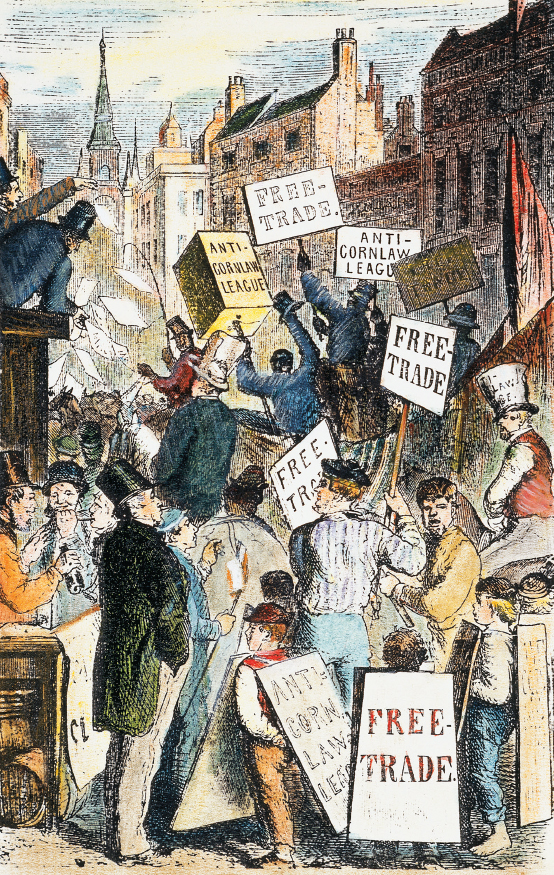Understanding Western Society
Printed Page 660
Liberal Reform in Great Britain
Pressure from below also reshaped politics in Great Britain, but through a process of gradual reform rather than revolution. Eighteenth-
In 1815, open conflict between the ruling class and laborers emerged when the aristocracy rammed far-
The change in the Corn Laws, coming as it did at a time of widespread unemployment and postwar economic distress, triggered protests and demonstrations by urban laborers, who enjoyed the support of radical intellectuals. In 1817, the Tory government, controlled completely by the landed aristocracy, responded by temporarily suspending the traditional rights of peaceable assembly and habeas corpus, which gives a person under arrest the right to a trial. Two years later, Parliament passed the infamous Six Acts, which, among other things, placed controls on a heavily taxed press and practically eliminated all mass meetings. These acts followed an enormous but orderly protest, at Saint Peter’s Fields in Manchester, which was savagely broken up by armed cavalry. Nicknamed the Battle of Peterloo, in scornful reference to the British victory at Waterloo, this incident demonstrated the government’s determination to repress dissenters.
In the 1820s, a less frightened Tory government moved in the direction of better urban administration, greater economic liberalism, civil equality for Catholics, and limited imports of foreign grain. These actions encouraged the middle classes to press on for reform of Parliament so they could have a larger say in government.
The Whig Party, though led like the Tories by great aristocrats, had by tradition been more responsive to middle-

Significantly, the bill moved British politics in a democratic direction and allowed the House of Commons to emerge as the all-
The “People’s Charter” of 1838 and the Chartist movement it inspired pressed British elites for yet more radical reform (see "The Early British Labor Movement" in Chapter 20). Inspired by the economic distress of the working class in the 1830s and 1840s, the Chartists demanded universal male (but not female) suffrage. Hundreds of thousands of people signed gigantic petitions calling on Parliament to grant all men the right to vote, first in 1839, again in 1842, and yet again in 1848. Parliament rejected all three petitions. In the short run, the working poor failed with their Chartist demands, but they learned a valuable lesson in mass politics.
While calling for universal male suffrage, many working-
The following year, the Tories passed a bill designed to help the working classes, but in a different way. The Ten Hours Act of 1847 limited the workday for women and young people in factories to ten hours. In competition with the middle class for the support of the working class, Tory legislators continued to support legislation regulating factory conditions. This competition between a still-